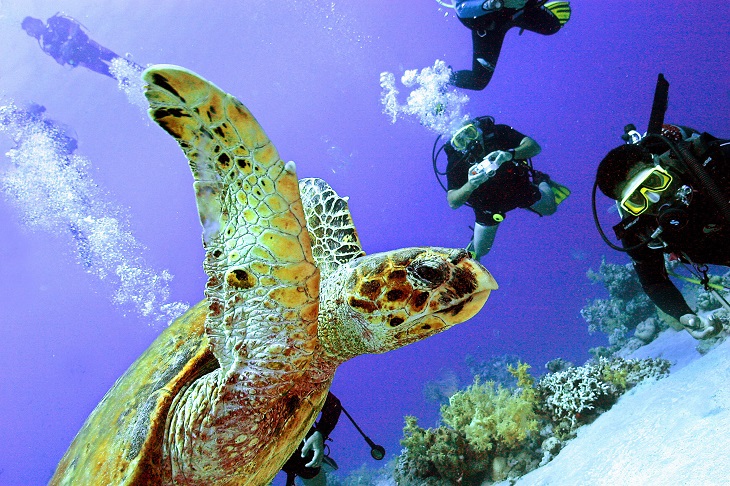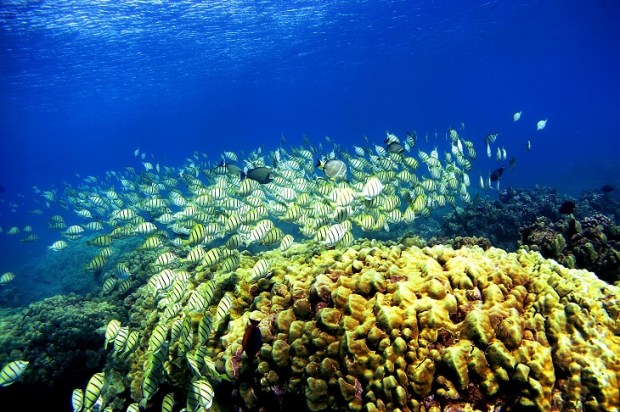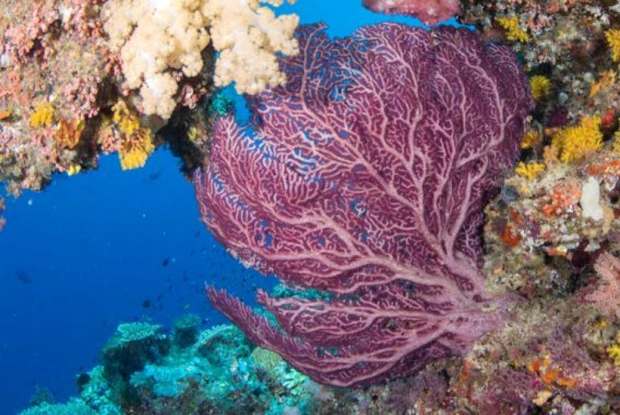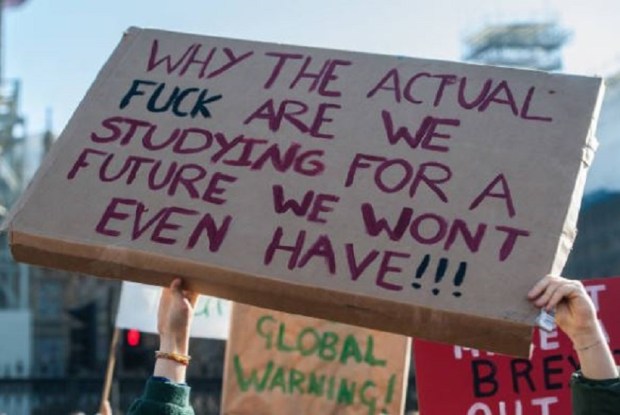As far as Australian left-wing politicians were concerned, the threatened endangerment finding on the Great Barrier Reef was just blackmail. ‘Change the government, or the reef gets it.’
And now that some of them have their payday, they’re not even coy about what they were up to. As reported in yesterday’s Australian:
‘The reason that UNESCO in the past has singled out a place as ‘at risk’ is because they wanted to see greater government investment or greater government action – and since the change of government, both of those things have happened,’ [Environment Minister Plibersek] said.
‘We’ll clearly make the point to UNESCO that there is no need to single the Great Barrier Reef out in this way.’
You have to give her marks for brazen retrospective honesty.
But that is only half the story. One lot of grifters has won their way into government, but a whole lot of others have to keep grifting, and that means the reef can never be allowed to be free – it always has to be on the brink of oblivion.
Take the UN for example. While the folklore positions it as some sort of impartial noble international forum cum legislature of the peoples, it has been completely corrupted. The vast majority of member countries either don’t even pretend to be democratic or affect democratic forms but are in fact rampant kleptocracies.
If a potential endangerment finding on the reef can blackmail Australians into paying a group of domestic politicians the salaries that go with being in government, the same thing can be applied at an international level to advantage a group of international politicians who are the shadow government of the world.
Take the latest boondoggle – climate reparations. If you jack up on paying billions of dollars towards climate reparations pity about the reef.
And then along with the international politicians there are the ‘research’ scientists. Despite the reef having record cover last year, plenty of them are happy to be quoted either saying that the reef is fragile, and can’t be guaranteed to keep improving. Or that things aren’t as good as they seem.
How fragile can the reef really be? In one shape or form it has been on the East Coast of Australia for 500,000 years. It had to grow back from scratch around 8,000 years ago after the last glaciation lowered sea levels 150 metres making what we now know as the Great Barrier Reef into a plain punctuated by hills.
The Whitsunday Islands? BC 13,000 you mean the Whitsunday Range.
Of course, given our God complex, we need to think that the reef depends on us.
Professor Mumby said: ‘There is an awful lot of work that needs to be done to shepherd this reef into a safer future and listing it as “in danger” helps, then fair enough.’
What hubris.
With an ecosystem that is 344,000 square kilometres in size, consisting of 2,900 individual reefs over a length of 2,300 kilometres of coast, filled with uncountable Sydney Harbours of seawater, what difference is a couple of marine science departments really going to make?
It’s like taking a few hundred PhD graduates and raking the Sahara to preserve it from dust storms. You’ll never rake a significant area, and even if you did, that’s not how dust storms work.
And this from a country whose record in biological control can be summed up by the fact that it has singularly failed to stop the spread of one tiny little amphibious reptile – the cane toad.
The farmers and the fishers and the tourist operators all get the blame for the ‘poor’ state of the reef. But as Peter Ridd has demonstrated, the water quality on most of the reef is virtually pristine, and more silt is deposited by a decent wet season than in the whole history of near-Great Barrier Reef farming.
Visual fact checks on reports of coral bleaching by Jennifer Marohasy have also found recent events this year to be, to put it kindly, exaggerated.
CO2 doesn’t seem to be a problem for reefs. We know they’ve dealt with much more CO2 in the atmosphere in the past, and thrived, and suffered when there was less.
We know they prosper in hotter temperatures than it is possible for our sub-tropical waters to reach, which is why there aren’t a lot of them south of Fraser Island – the water’s just not inviting enough.
As for predators, well, the Crown of Thorns starfish has got to eat, and it’s been dining on coral for millennia without emptying the pantry.
But our professors and et al researchers need to be kept employed, and they’re not really that worried about Tanya Plibersek retaining her job, so they’re happy to use the UN.
Poor Tanya. They say that if you don’t know who the mark is you’re the mark, but there’s a more sophisticated version where there are two marks. She thought she was running the con, but it turns out that all along she was just another sucker.
Got something to add? Join the discussion and comment below.
Get 10 issues for just $10
Subscribe to The Spectator Australia today for the next 10 magazine issues, plus full online access, for just $10.


























Comments
Don't miss out
Join the conversation with other Spectator Australia readers. Subscribe to leave a comment.
SUBSCRIBEAlready a subscriber? Log in